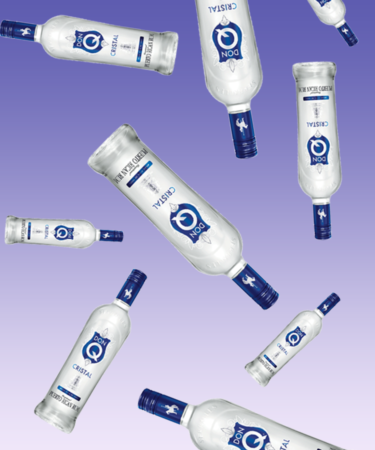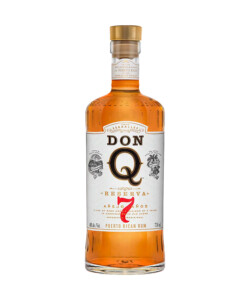Don Q, a multigenerational family rum brand, prides itself on its Puerto Rican roots. The label, produced by Destilería Serrallés since 1865, claims such local titles as the oldest operating distillery in Puerto Rico, as well as the island’s best-selling rum.
In 2006, Don Q became available in the contiguous U.S., and it’s been gaining momentum among premium rum drinkers ever since. Read on for eight more things you should know about Don Q.
Don Q’s ancestors were Spanish.
The Serrallés family emigrated from Spain to Puerto Rico in the 1820s, when they began growing sugar cane outside of Ponce, P.R. The operation quickly grew, and the family soon exported sugar to the U.S., the U.K., and France.
First came sugar, then came rum.
In 1865, Don Juan Serrallés purchased a copper still from France and began producing spirits. The distillery ceased commercial production during Prohibition, but reopened in 1933. The following year, the Serrallés family purchased a copper still that is still in use today.
Don Q is officially Puerto Rican.
In order to be labeled as “Puerto Rican Rum,” the sugar-cane-based spirit must spend a minimum of one year in barrel. This is also true for Don Q’s light rum, which is aged for a year, then charcoal-filtered for clarity.
Don Q bottles the flavors of Puerto Rico.
Don Q’s current flavor roster includes Coconut, Lime, Mojito, Passion Fruit, and Pineapple. No added sugars are used, and the natural flavors are kept as Puerto Rican as possible. In one case, this meant using a Puerto Rican strain of passion fruit, which is sweeter than the one available in the continental U.S. You may notice the passion fruit on the label looks a bit different — that’s why.
Don Q is loved by locals.
According to Don Q VP of business development and sixth-generation rum maker Roberto Serrallés, Bacardi is better known and has greater market share in the U.S., but in the competing brands’ shared home of Puerto Rico, Don Q is more popular.
It’s named after a certain ‘man of La Mancha.’
Don Q takes its name from the famous 1600s Spanish novel, “Don Quixote of La Mancha,” by Miguel de Cervantes. The brand website explains, “Just as Don Quixote represents the search for a perfect world, Don Q signifies the family’s quest for perfection in rum making.”
Don Q is environmentally responsible.
“The spirits industry has a wastewater problem,” Serrallés says. “Behind every bottle of rum that you see in a bar, there are about nine bottles of wastewater sitting right behind it.” Whereas some Carribbean rum producers choose to dump that wastewater in the ocean, Don Q utilized Serrallés’s doctorate in environmental sciences to build a wastewater reclamation plant, cleaning up that wastewater into irrigation-grade water.
You might be drinking Destilería Serrallés rum without knowing it.
An area of the business that “keeps the lights on,” according to Serallés, is bulk rum, meaning unlabeled rum sold off to other rum brands. This bulk rum is the only un-aged rum the distillery produces. Including bulk rum and Don Q, Destilería Serrallés is the largest exporter of rum to the U.S.
Don Q is both traditional and unconventional.
In order to perfectly complement rum’s sweetness, rather than adding excessively oaky flavors, Don Q ages in twice-used whiskey barrels. “My biggest pet peeve is age claims,” Serrallés told VinePair. He says that “rum is the most democratic spirit,” as it’s made in many places in the world, but where labeling conventions vary by country, it slants the playing field. “If we take a 20-year rum and put a drop of a one-year rum in it, we have to call it a one-year rum,” Serrallés explains, “but we’re competing with people who can take a one-year rum, put a drop of 20-year in it, and call it a 10-year because it’s an average of both ages.”
Don Q’s creation requires sacrifice.
Spirits production famously includes the “angel’s share,” a percentage of distillate that is lost as liquor ages. Scotch loses 1 to 2 percent of its whisky during barrel aging; and Kentucky whiskey loses 3 to 5 percent. Don Q, however, loses between 8 and 10 percent of its liquid through aging each year, thanks to Puerto Rico’s warm, humid climate.


